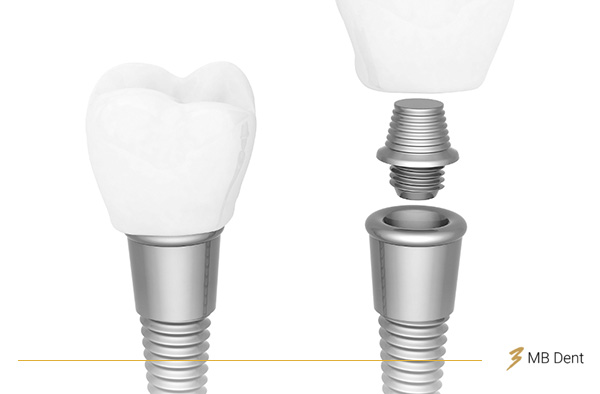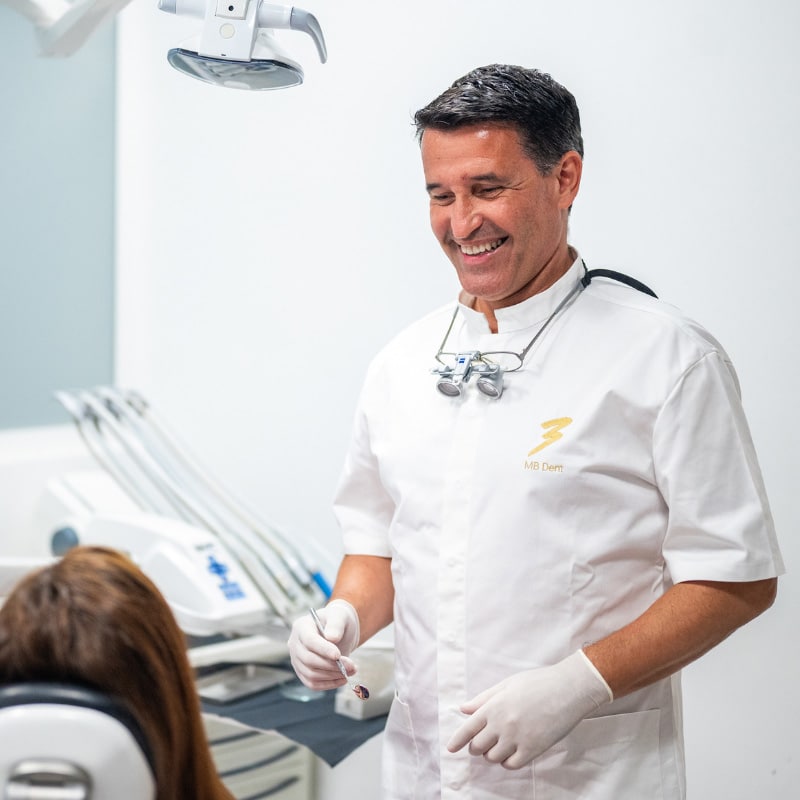Oral surgery is a branch of dental medicine that deals with the diagnosis and surgical treatment of diseases, injuries, and defects in the mouth, jaws, and surrounding structures. It includes procedures such as tooth extractions, surgical removal of wisdom teeth, apicoectomy, and the placement of dental implants. Oral surgeons also perform more complex procedures such as jaw reconstruction, treatment of facial fractures, or correction of congenital anomalies like cleft lip or cleft palate. The goal of oral surgery is to restore functionality and aesthetics to the oral cavity, while improving the patient’s quality of life.
Dental Implants
A dental implant is an artificial tooth root that is surgically implanted into the jawbone to hold a replacement tooth, bridge, or denture in place. The advantages of using implants are that they do not rely on adjacent teeth and are a permanent and stable solution.

Implants are made of titanium and are perfectly compatible with bone tissue. They can support one or more replacement teeth in the case of crowns and bridges, as well as fixed or semi-fixed dentures. If installed by specialists, they have a lifetime lifespan.
Learn more about dental implants.
Wisdom Teeth
Wisdom teeth or third molars are the last, or eighth, teeth in the dental arch that develop and appear in your mouth. They most commonly grow between the ages of 17 and 25, a life period called the “age of wisdom,” from which they got their name.
Wisdom teeth should not be removed if they are fully grown, functional, do not cause pain, are not affected by decay, are in the correct position, and are accessible for cleaning.
They most often need to be surgically removed in the following cases:
- due to infections and/or periodontal disease (gum disease)
- decay that cannot be treated
- cysts, tumors, and other diseases
- damage to surrounding teeth
Apicoectomy
Even when most root canals function well, sometimes that is not enough. If the infection from the dead nerve inside the tooth spreads outside the tooth root and onto the surrounding bone tissue, your dentist will advise you to consult an oral surgeon for an apicoectomy. During the procedure, the surgeon removes the affected part of the tooth root to clean the tooth infection and surrounding bone and then fills the tooth root with a certain material to prevent possible future infections.
Sinus Lift
A sinus lift is a surgical therapy in the upper jaw. It involves lifting the sinus floor while simultaneously filling the bone defect to create sufficient bone thickness for implant placement. The need for this therapy is most often due to prolonged toothlessness, due to the loss of upper teeth 3, 4, 5, 6 which leads to bone resorption and pneumatization of the maxillary sinus.
Warranty
Lifetime warranty on all implants and superstructures against breakage.
Five years warranty on all metal-ceramic and zircon-ceramic crowns.
Five years warranty on all wironit dentures.

For any additional information, follow the blogs of the MB Dent clinic. If you would like more information from Dr. Matko Božić and his team, write to us at info@mbdent.com, WhatsApp 095 3634 337, or call us on the phone number 01 35 35 435 or mobile 095 3634 337.

